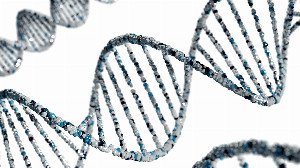Erin Channiago, Jursi Hermada Gomang, Indah Fitri Cahyani, Fenny Tania Ginting, Harum Isnin
Media and Character Education in Preventing Corruption in Indonesia: The Future Challenges
Introduction
Media and character education in preventing corruption in indonesia: the future challenges. Explore how media and character education prevent corruption in Indonesia, fostering anti-corruption values in youth for a future free from corrupt practices.
Abstract
The research is aimed at providing an explanation and knowing the relationship that exists between knowledge of attitudes and moral emotions. The approach method in the research used is in the form of qualitative retrieval by managing data collected through primary data sources by means of a literature study. The data that has been collected was analyzed using descriptive analysis, focusing on the description of the meaning in several categories and correlated with the theory of character formation in order to find a correlation between the cultivation of an anti-corruptive spirit and the urgency of character education as an effort to minimize corrupt culture in Indonesia. The results of this study indicate that character education can form non-corruptive souls for the nation's generation, especially the younger generation so that they can make anti-corruption culture a culture that thickens in life and performance when they are domiciled in a state administration. The results also show that there is a relationship between knowledge attitude and moral feeling, even though the period of time is not so fast, but the impact of this moral feeling will be felt after a period of time. While in attitude behavior there is an increase in a positive direction, one of which is the implementation of the honesty canteen which in the implementation of the honesty canteen is already good with the percentage results reaching an average of 80% meaning that anti-corruption values slowly begin to form with good habits which then familiarize the nation's generation to be honest and contribute greatly to the consistency of the non-corruption movement for the development of the country's progress that is free from corrupt attitudes
Review
This paper addresses a highly pertinent and critical issue in the Indonesian context: the role of character education in fostering an anti-corruption culture. The ambition to explore the relationship between knowledge, attitudes, and moral emotions in preventing corruption through educational interventions is commendable. The abstract suggests that character education can indeed cultivate non-corruptive attitudes, particularly among the younger generation, and highlights the long-term impact of moral feelings on behavior. Given the societal challenges posed by corruption, research into effective preventative strategies, especially those rooted in education, holds significant value and potential for national development. However, the abstract presents several substantial methodological and structural inconsistencies that significantly impede its clarity and academic rigor. Foremost, there is a clear disconnect between the expansive title, "Media and Character Education in Preventing Corruption in Indonesia: The Future Challenges," and the abstract's content, which makes no mention of "Media" and only vaguely touches upon "Future Challenges" through its general conclusions. Methodologically, the description is contradictory; it states "qualitative retrieval by managing data collected through primary data sources by means of a literature study." A literature study typically utilizes secondary data, not primary, and it is unclear how this "qualitative retrieval" yielded the specific quantitative result of an "80%" success rate for an "honesty canteen." This suggests either a poorly described mixed-methods approach or a fundamental misunderstanding of research terminology. Furthermore, the phrasing "knowledge of attitudes and moral emotions" and other grammatical constructions throughout the abstract are awkward and require careful revision for clarity and academic precision. While the findings suggest a positive impact of character education and specific initiatives like the "honesty canteen," the lack of methodological clarity makes it difficult to assess the validity and generalizability of these conclusions. To be considered for publication, a major revision is imperative. The authors must first align the title with the actual scope and content of the research or, alternatively, expand the abstract to thoroughly address the "Media" and "Future Challenges" aspects. More critically, the methodology section needs a complete overhaul to clearly articulate the research design, data collection methods (distinguishing between primary and secondary data, if both were used), and how the "descriptive analysis" led to both qualitative interpretations and specific quantitative percentages. Finally, a thorough linguistic review is necessary to improve the readability, academic tone, and overall coherence of the abstract.
Full Text
You need to be logged in to view the full text and Download file of this article - Media and Character Education in Preventing Corruption in Indonesia: The Future Challenges from Indonesia Media Law Review .
Login to View Full Text And DownloadComments
You need to be logged in to post a comment.
Top Blogs by Rating
Beyond Impatience: A Philosoph...
By Sciaria
Phantom Power: Unmasking Your...
By Sciaria
Whispers from the Walls: Unloc...
By Sciaria
Favorite Blog
Is Electro Music the New Class...
By Sciaria
Mycorrhizal Networks: Unearthi...
By Sciaria
Your Dynamic DNA: The Adapting...
By Sciaria





